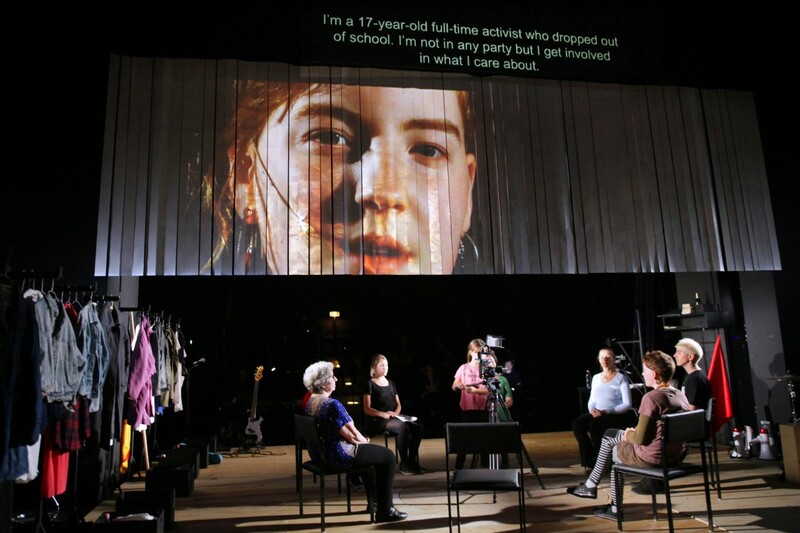Lola Arias
Works

Play, 2016
In the summer of 1917 Lenin travelled in a sealed train, with the permission of the German Emperor, to Petrograd and lit the sparks that spread the October Revolution. The train's journey, however, left a mark on its transit country as well: In 1918 Karl Liebknecht tried to proclaim the Free Socialist Republic from the palace balcony in Berlin.
Men dominate in historiography.
99 years later, the Argentine director Lola Arias invites people from 10 to 84 years old to the stage to tell stories about communism. Together they will reconstruct their own lives and that of Salomea Genin. As a child of a Jewish family Salomea Genin was forced to flee from the National Socialist regime of terror to Australia, where she was inspired by the communist dream and decided to support building a socialist state on German soil. She worked for the Stasi before she realized that the GDR had become a police state and then broke with it. Her story is accompanied by those of a translator, an actress, a punk singer and a Vietnamese contract worker, as well as a puppeteer, a 16 year-old activist and a student from Berlin Pankow.
Together they report on singing communist work songs in front of factories, on the teachings of socialist brother countries, on surveillance in everyday life, on concerts in church rooms, on the discussion in the theatre during reunification, on burning asylum centres in eastern Germany and the demands from refugees today, all in order to reveal an image of the personal in the political, of failure and getting up again.
Lola Arias became known around the world for her works Mi vida después (My Life After, 2009) and El año en que nací (The Year I Was Born, 2012). In both works, youth who were born during the Argentinian military dictatorship or under the Pinochet dictatorship in Chile deal with their parents' biographies.